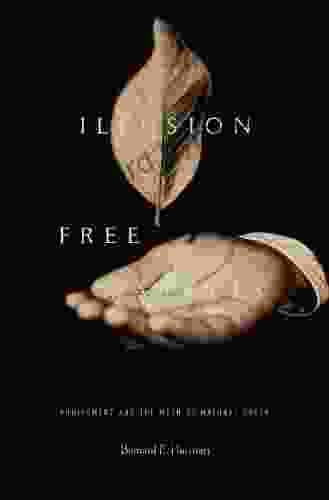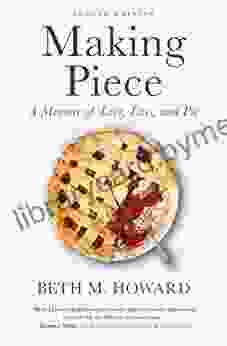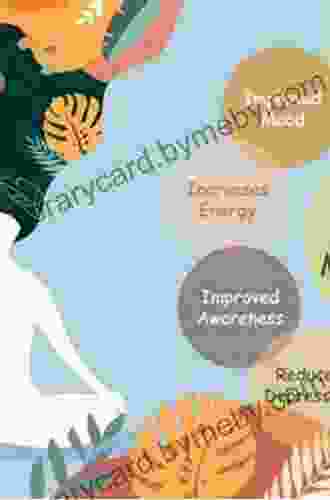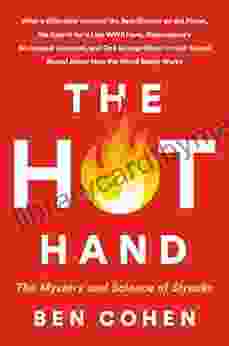Unveiling the Illusion of Free Markets

The concept of free markets has long been enshrined as a cornerstone of economic theory, embodying the ideal of a system where individual choices and market forces drive economic outcomes. However, beneath the surface of this idealized vision lies a complex and often contradictory reality, where the interplay of market forces, government intervention, and social norms creates a far more intricate economic landscape.
4.5 out of 5
| Language | : | English |
| File size | : | 3236 KB |
| Text-to-Speech | : | Enabled |
| Print length | : | 336 pages |
Market Distortions: Invisible Hands and Hidden Agendas
Markets, by their very nature, are imperfect. Information asymmetries, market power imbalances, and externalities create distortions that undermine the efficient allocation of resources. Monopolies and oligopolies wield undue influence, distorting prices and suppressing competition. Lobbying and campaign finance introduce the insidious influence of special interests, warping market outcomes to favor the privileged few.
Case Study: The Pharmaceutical Industry
The pharmaceutical industry provides a glaring example of market distortions. Patent protection grants drug companies monopoly power, allowing them to charge exorbitant prices for essential medications. Lobbying efforts have weakened antitrust laws, hindering the entry of generic competitors and perpetuating high drug costs. This distortion has far-reaching consequences, limiting access to healthcare and exacerbating health disparities.
Government Intervention: Balancing Market Failures and Social Justice
Government intervention, often justified as a corrective to market failures, can have both positive and negative effects. Regulations aimed at protecting consumers, promoting competition, and addressing externalities can enhance market efficiency and promote social justice.
However, excessive or misguided government intervention can also stifle innovation, reduce market flexibility, and create unintended consequences. Excessive regulation can discourage entrepreneurship and hinder the emergence of new industries. Government subsidies and bailouts can distort market incentives, leading to inefficient allocation of resources and fostering a culture of dependency.
Case Study: The 2008 Financial Crisis
The 2008 financial crisis vividly illustrates the potential consequences of excessive government intervention. Deregulation of the financial industry and government-sponsored mortgage programs created a housing bubble that ultimately burst, triggering a global economic meltdown. The subsequent government bailouts of banks and financial institutions stabilized the financial system but also rewarded reckless behavior and undermined public trust.
Social Norms: Shaping Markets from the Shadows
Beyond market forces and government intervention, social norms play a profound role in shaping economic behavior. Cultural values, ethical considerations, and societal expectations influence consumer preferences, production processes, and investment decisions.
Social norms can promote pro-social behaviors, such as environmental sustainability, fair trade, and charitable giving. However, they can also perpetuate biases, discrimination, and exclusionary practices that undermine market efficiency and social justice.
Case Study: The Gender Pay Gap
The gender pay gap, a persistent and pervasive issue in many countries, is a prime example of how social norms can distort markets. Unconscious bias and gender stereotypes contribute to wage disparities, despite laws and regulations prohibiting discrimination. Breaking down these social barriers requires a fundamental shift in cultural attitudes and systemic change.
Behavioral Economics: Uncovering the Irrationality of Rational Actors
Traditional economic theory assumes that individuals make rational decisions based on self-interest. However, behavioral economics has challenged this assumption, revealing that human behavior is often influenced by cognitive biases, heuristics, and emotional triggers.
Understanding these behavioral biases can help policymakers design more effective regulations, marketers create more persuasive campaigns, and individuals make more informed economic choices.
Case Study: The Endowment Effect
The endowment effect is a cognitive bias that leads individuals to value items they own more highly than items they do not own. This bias can distort markets by creating artificial scarcity and inflated prices.
The Illusion of Free Markets: A Call for Transparency and Accountability
The concept of free markets is a powerful ideal that has shaped economic policy and guided countless decisions. However, the reality of our economic system is far more complex and less pristine than its theoretical foundation.
Unveiling the illusion of free markets is not about abandoning market principles but rather about recognizing and addressing the distortions and imperfections that undermine their efficiency and fairness. It is a call for transparency, accountability, and a more nuanced understanding of the forces that shape our economic landscape.
By embracing this more comprehensive perspective, we can work towards creating a more equitable, sustainable, and truly free market system.
The illusion of free markets is a powerful narrative that has obscured the true nature of our economic system. By exposing the complex web of influences and distortions that shape market outcomes, we can empower ourselves to demand a more just and equitable economy.
This book is an essential guide for anyone seeking a deeper understanding of the intricate workings of our economic system. It is a call to arms for policymakers, economists, business leaders, and citizens alike, to work towards a future where markets serve the interests of all, not just the privileged few.
4.5 out of 5
| Language | : | English |
| File size | : | 3236 KB |
| Text-to-Speech | : | Enabled |
| Print length | : | 336 pages |
Do you want to contribute by writing guest posts on this blog?
Please contact us and send us a resume of previous articles that you have written.
 Book
Book Novel
Novel Page
Page Chapter
Chapter Text
Text Story
Story Genre
Genre Reader
Reader Library
Library Paperback
Paperback E-book
E-book Magazine
Magazine Newspaper
Newspaper Paragraph
Paragraph Sentence
Sentence Bookmark
Bookmark Shelf
Shelf Glossary
Glossary Bibliography
Bibliography Foreword
Foreword Preface
Preface Synopsis
Synopsis Annotation
Annotation Footnote
Footnote Manuscript
Manuscript Scroll
Scroll Codex
Codex Tome
Tome Bestseller
Bestseller Classics
Classics Library card
Library card Narrative
Narrative Biography
Biography Autobiography
Autobiography Memoir
Memoir Reference
Reference Encyclopedia
Encyclopedia David Bowles
David Bowles Blake Mycoskie
Blake Mycoskie Tara Conklin
Tara Conklin Charles H Green
Charles H Green Ben Gillman
Ben Gillman James D Umbach
James D Umbach Joseph Starzyk
Joseph Starzyk Bill White
Bill White William A Smith
William A Smith Matthew A Martinez
Matthew A Martinez Bob Chase
Bob Chase Bob Langert
Bob Langert Betsy Duffey
Betsy Duffey Blessing Miles Tendi
Blessing Miles Tendi Bernard Marin
Bernard Marin Paola Roig
Paola Roig Nancy G Slack
Nancy G Slack W T Larned
W T Larned Kimberly Chrisman Campbell
Kimberly Chrisman Campbell Bjorn Kjellstrom
Bjorn Kjellstrom
Light bulbAdvertise smarter! Our strategic ad space ensures maximum exposure. Reserve your spot today!
 Jermaine PowellFollow ·4.5k
Jermaine PowellFollow ·4.5k Barry BryantFollow ·10.3k
Barry BryantFollow ·10.3k Kurt VonnegutFollow ·14k
Kurt VonnegutFollow ·14k Chris ColemanFollow ·12.3k
Chris ColemanFollow ·12.3k Reed MitchellFollow ·12.8k
Reed MitchellFollow ·12.8k Manuel ButlerFollow ·16.5k
Manuel ButlerFollow ·16.5k Vernon BlairFollow ·16.1k
Vernon BlairFollow ·16.1k Christian BarnesFollow ·17.4k
Christian BarnesFollow ·17.4k

 Ivan Cox
Ivan CoxSpeak With Ease: The Ultimate Guide to Public Speaking...
By Rupika Raj ...

 Jesus Mitchell
Jesus MitchellVulcan Forge: A Suspense Thriller that Will Keep You on...
Vulcan Forge is...

 Dashawn Hayes
Dashawn HayesThe Carteret Family Bob Martin: A Comprehensive Review
Bob Martin's...

 Owen Simmons
Owen SimmonsUnlock the World of Cultural Nuances with "The Global...
Embark on a Journey of...
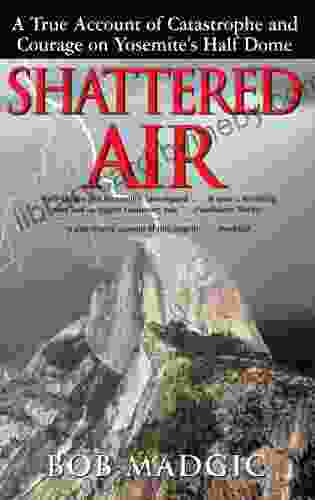
 Ian McEwan
Ian McEwanConquer the Mountain: True Account of Catastrophe and...
In the heart of California's stunning...
4.5 out of 5
| Language | : | English |
| File size | : | 3236 KB |
| Text-to-Speech | : | Enabled |
| Print length | : | 336 pages |


